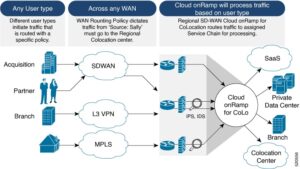
November 10, 2022 – The Federal Communications Commission announced Thursday four outreach programs in the Affordable Connectivity Program and a notice of funding opportunity for two of the programs.
This summer, the agency announced the Affordable Connectivity Outreach Grant Program to raise awareness for the $14.2-billion program, which subsidizes monthly internet bills – of up to $30 per month and $75 per month for residents on tribal lands – and provides a $100 discount on device purchases for low-income applicants. The commission has said that there are millions more Americans who are eligible but have not signed up — in part because they are not aware.
On Thursday, the FCC announced four complementary grant programs to market the ACP: the National Competitive Outreach Program; the Tribal Competitive Outreach Program; Your Home, Your Internet Program; and the ACP Navigator Pilot Program.

The agency also announced the release of a notice of funding opportunity for both the NCOP and the TCOP, worth up to $60 million and $10 million, respectively. Applications are due January 9, 2023.
The commission said it will post another NOFO on November 21, 2022 for the ‘Your Home, Your Internet’ Program and the ACP Navigator pilot program.
“The success of the Affordable Connectivity Program thus far has taught us some important lessons, and none more valuable than the importance of trusted messengers,” said FCC Chairwoman Jessica Rosenworcel in the release.
“Today, we’re building on that progress by offering local organizations additional support from the FCC. Our outreach partners have already demonstrated creativity, perseverance, and a continued commitment to ensuring everyone, everywhere has the internet connections they need, and these outreach grants aim to supercharge those successful efforts”.

In September, the FCC issued media packages for partnering sites like public schools, churches, and libraries called “ACP Consumer Outreach Kit,” which provides them with fliers, posters, audio PSAs, and social media templates to spread awareness.
New study finds minorities use cell service for internet off-campus
A working paper released this month by the University of Florida recommends that state, local, and educational policymakers prioritize broadband infrastructure, as it found college minorities are reliant on cell service for internet off-campus.
According to the report, 1 in 8 students rely on cellular data services for connectivity off-campus. White and East Asian undergraduate men are 5.5 percentage points more likely to have in-home broadband access off-campus compared to Black, Latina, Pacific Islander, White, South Asian, and Indigenous American women.
“At the state and federal level, policymakers should target telecommunication infrastructure improvements in communities with the greatest need,” the report said. “Simultaneously, they should provide targeted subsidies to residents in communities with limited, high-cost broadband options. Priority should be given to neighborhoods and populations historically neglected by infrastructural improvements due to racist policies and practices.
“Education policymakers, like institutions, should similarly consider broadband costs in their formulas for assessing student financial need. In the face of limited funding, priority should again be given to students living in poorly connected areas,” the report added.
In response to the need to end digital discrimination, the FCC issued a report Monday recommending strategies to minimize digital discrimination and advance digital equity and to ensure Infrastructure Investment and Jobs Act funding is equitably distributed.
Broadband advocacy group Next Century Cities also asked the FCC on Wednesday to closely examine the practice of digital discrimination, a practice that neglects critical infrastructure in areas based on race and class demographics.
Private equity firm to buy Kansas ISP
Toronto-based private equity firm Northleaf Capital Partners announced Wednesday it is acquiring Kansas-based internet service provider Mercury Broadband to expand connectivity in the rural communities of Kansas, Indiana, Missouri, Michigan, Ohio and Illinois.
Northleaf will invest up to $230 million over the next several years to support Mercury Broadband’s effort to build over 12,000 miles of fiber infrastructure and fixed wireless access sites, the company said, adding deployment will take up to six years. Mercury Broadband secured $62 million from the Rural Digital Opportunity Fund in August of this year.
“Mercury Broadband’s commitment to bridging the digital divide is an excellent fit with our communications infrastructure investment strategy and provides our investors with exposure to an attractive sector with a compelling risk/return profile and significant growth potential,” said Northleaf director Chris Rigobon.
“The investment by Northleaf represents a major milestone for our company,” added Mercury Broadband CEO Garrett Wiseman. “We have ambitious growth plans and, with strong investment partners like Northleaf, we can fulfill our goal of aggressively delivering advanced, high speed Internet services to more underserved communities.”



